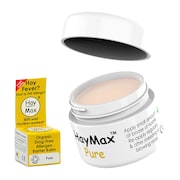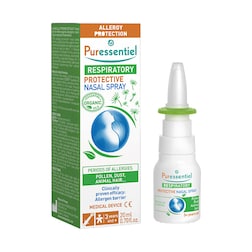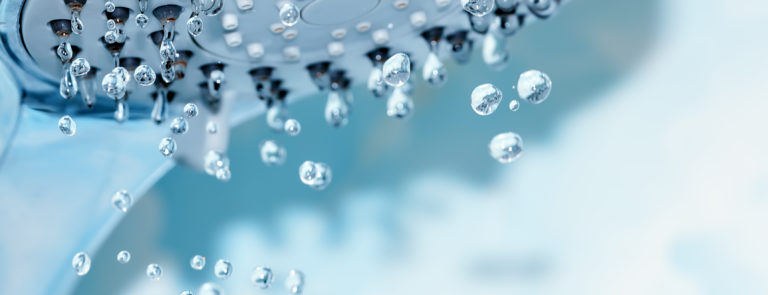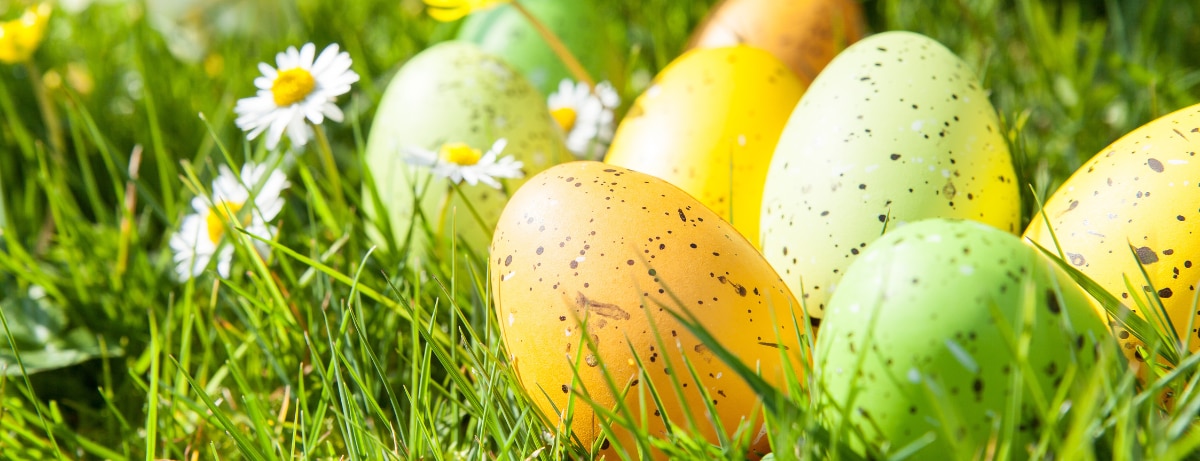20% off €35
Code:EXTRA20
Struggling with hay fever? Our best hay fever remedies and relief

From natural remedies for hay fever to hay fever medications, we asked our in-house expert ways to relieve the symptoms of hay fever
Our top picks
Barrier balm

Haymax Ltd
Haymax Pure Organic Drug Free Pollen Barrier Balm 5ml
Buy 1 Get 1 Free
€11.00
Itchy eyes, persistent sneezing, blocked nose... living with hay fever can be pretty draining,
When your body’s waging war against pollen, you’re left scrambling for answers:
leaving you with questions on how to best combat your symptoms. From "can dietary changes make a difference?" to "do alternative inventions for hay fever actually work?"
Fortunately, there are a wide variety of potential remedies available to manage your symptoms. But which are the most effective?
Well, while we can’t tell you how to stop hay fever immediately, we can tell you what new and emerging science says about some of the herbal and medicinal remedies worth paying attention to.
So keep on reading to find out more, harnessing the expert insights of Emily Rollason – one of our Senior Nutritionists here at H&B.
How to manage your hay fever
Hay fever is a common allergy that’s estimated to affect around one in five people at some point in their life.1
Otherwise known as seasonal allergic rhinitis, hay fever is caused by a specific allergic reaction to pollen.1 This is because pollen contains proteins that can cause inflammation and irritation in the nose, eyes, throat and sinuses.1,2
As pollen count tends to be at their highest on sunny, windy or humid days, hay fever tends to strike during the summer months, causing symptoms like:3
- sneezing
- coughing
- itchy, red or watery eyes
- itchy throat, mouth, nose and ears
- a congested or runny nose
- loss of smell
- pain around your temples and forehead
- headache
- earache
- fatigue
According to Emily, the best solution is perhaps the most obvious.
“Avoiding pollen and taking away the trigger of your allergy is the most obvious way to reduce hay fever symptoms,” she said.
”This is because, the more contact you have with pollen, the more histamine is released by your body. Limiting contact with pollen can [therefore] help to reduce both the severity and duration of symptoms. But if you enjoy the outdoors this may seem too big a compromise.”
So, what can you do if you still want to be able to enjoy the outdoors?
Our top picks for hay fever relief
From hay fever eye drops to wipes and nasal sprays, there is a wide range of treatments already available to help you combat your symptoms.
There are a range of different nasal sprays out there; this one by Puressentiel has been specifically made to help with allergies like hay fever. It works by forming a protective film that shields your nasal passages from the harmful effects of pollen, dust and pet hair.
- can be used as often as necessary, renewing as needed every 4 hours, up to 6 times a day
- soothing hydration: the unique formula combines seawater, a film-forming agent and organic essential oil of Eucalyptus radiata to gently moisturise your nasal cavities and maintain their natural hydration
- immediate relief: you'll experience a refreshing sensation and immediate comfort as the spray soothes your nasal mucous membrane
- this non-irritating, non-drying action formula is safe and effective for both adults and children (3 years+)
- it’s recommended to clear the nasal passages beforehand with an isotonic solution and blow your nose
- then spray the product into the nostrils, gently pinching between two fingers to spread the protective film across the entire nasal mucous membrane
- do not blow your nose after spraying to keep it in
Using a barrier cream on your nose has been said to help trap pollen before it reaches your nostrils. This one from Haymax is a brilliant drug-free option, coming in aloe vera, plain or lavender scent.
- acts as a natural barrier to allergens
- suitable for adults and children aged 6+
- certified organic and vegan
- synthetic fragrance-free and non-drowsy
- use your fingers to apply a thin layer to the rim of your nostrils
- re-apply when needed
Alternative hay fever remedies
According to Emily, there are also “several sources of natural hay fever support that can help you navigate your symptoms”. These include:
- honey – when using honey to treat hay fever, the jury is well and truly out. In short, some research studies have found an effect of honey on symptoms and others haven’t.4.5 However, none have found a harmful effect from using it for hay fever.4 So, why not try it, and see if it works for you?
- herbal medicine – herbal remedies may be an effective way to combat hay fever and include herbal medicine in any formulation – from decoction (the most common form of Chinese medicine) to tablets, powders, herbal patches and nasal sprays6
- dietary changes – while the data remains limited, there’s some evidence to indicate that plant-based diets can help people become more tolerant of various environmental stimuli, such as dust and flowers7
- apple polyphenols – apples are a rich source of polyphenols, which in some promising research have been found to deliver a significant reduction in sneezing attacks when consumed before and during the pollen season4
- probiotics – lactobacillus, Bifidobacteria or Bacillus, all of which are classed as probiotics, have demonstrated health-promoting effects and have been shown to reduce the need for antihistamines in children.4 However, the NHS says the evidence is still in its infancy, but they acknowledge some evidence shows it may be helpful and probiotics are generally fine to take in people who have a healthy immune system
- ginger – ginger extract has been shown, in 1 randomised control trial involving 80 volunteers, to reduce nasal symptoms and improve the quality of life for patients with allergic rhinitis, making it a potentially promising intervention.8 Larger studies are needed to confirm the benefits, but why not try having a shot of ginger juice and see if it helps you?
Supplements for hay fever relief
For a long time, there’s been a lot of debate surrounding how effective supplements were at treating hay fever, and there isn’t a huge amount of scientific research around it.
One supplement which may help with hay fever is quercetin. Quercetin is a natural chemical that has been found to have both antihistamine and anti-inflammatory properties, which may make it an effective natural hay fever remedy.4
It’s commonly found in various fruits, vegetables and nuts, specifically lettuce, chilli pepper, cranberry, onion, black elderberry, caper, tomato, broccoli and apple.9
Hay fever medication options
The first line of defence for many hay fever sufferers is using a conventional hay fever treatment known as an antihistamine.10 These work by blocking the action of histamine – a substance your body produces to fight the pollen it perceives as a threat, which causes the common symptoms of hay fever.
In other words, taking an antihistamine before coming into contact with pollen will stop your body from producing histamine and inhibit hay fever symptoms.10
However, before taking one for your symptoms, Emily says it’s worth looking at all your options.
“There are compounds found in certain foods that have potential antihistamine properties that may ease hay fever symptoms,” she said.
“So, if you’re unable or prefer not to take conventional hay fever medication for any reason, it’s worth looking into whether an alternative support for hay fever could work for you.”
Could foods help to relieve hay fever?
If you’re looking for a natural, dietary-based way to help your hay fever then read below:
What you eat as part of your diet is believed to make a difference in the intensity of your hay fever symptoms. This is because some foods can exacerbate allergic reactions.7
For example, eating excess calories, a high intake of protein and saturated fatty acids, and a lack of dietary fibre and micronutrients have all been found to trigger the defence mechanism in the immune system, making allergic reactions more likely.7
What’s more, plant-based diets, rich in fruits and vegetables, grains and legumes, have been found to reduce inflammation.7 Consuming a well-balanced, high-fibre diet may help prime your immune system for allergens and prevent reactions.
“Take the time to identify any foods that could be irritating your immune system and increasing histamine levels and congestion,” Emily says.
“But remember, although nutrition can play a role in managing the severity of hay fever symptoms, the results won’t be immediate.
“If you can, it pays to be prepared and start introducing allergy-supporting ingredients into your diet before the pollen count starts to rise.”
The final say
To reduce the impact of hay fever, antihistamines are a tried and tested remedy, scientifically proven to reduce hay fever symptoms.10
However, emerging evidence is also starting to highlight the role of diet and supplements in reducing allergic rhinitis.4,7 So, why not take a look at our full range?
Alternatively, if you’re keen to learn more about hay fever, we have guides available on its symptoms and causes, as well as answers to some of its most Googled questions.
However, if you’re struggling with severe hay fever symptoms, or find that they’re making any of your other conditions worse, speak to your GP as they’ll be able to advise you on your best course of treatment.
The advice in this article is for information only and should not replace medical care.
Please check with your GP or healthcare professional before trying any supplements,
treatments or remedies. Food supplements must not be used as a substitute for a
varied and balanced diet and a healthy lifestyle.
While we strive for accuracy and balance, please be aware that this article may
discuss products available for purchase through Holland & Barrett.
- NHS Inform. Hay fever [Internet]. [Cited 2024 Mar 14]. Available from: https://www.nhsinform.scot/illnesses-and-conditions/immune-system/hay-fever/.
- NHS. Overview - Allergic Rhinitis [Internet]. [Cited 2024 Mar 14]. Available from: https://www.nhs.uk/conditions/allergic-rhinitis/.
- NHS Choices. Hay fever [Internet]. [Cited 2024 Mar 14]. Available from: https://www.nhs.uk/conditions/hay-fever/.
- Pellow, J., et al. ‘Health supplements for allergic rhinitis: A mixed-methods systematic review.’ Complementary Therapies in Medicine. 2020;51:102425. Available from: https://doi.org/10.1016/j.ctim.2020.102425.
- Münstedt, K., et al. ‘Seasonal allergic rhinitis and the role of apitherapy.’ Allergologia et Immunopathologia. 2020;48(6):582–8. Available from: https://doi.org/10.1016/j.aller.2020.03.015.
- Hoang, MP., et al. ‘Herbal Medicines for Allergic Rhinitis: a Systematic Review and Meta-analysis.’ Current Allergy and Asthma Reports. 2021;21(4). Available from: https://doi.org/10.1007/s11882-021-00999-9.
- Zhang, P. ‘The Role of Diet and Nutrition in Allergic Diseases.’ Nutrients. 2023. Available from: https://www.ncbi.nlm.nih.gov/pmc/articles/PMC10490368/.
- Yamprasert, R., et al. ‘Ginger extract versus Loratadine in the treatment of allergic rhinitis: a randomized controlled trial.’ BMC Complementary Medicine and Therapies. 2020;20(1). Available from: https://doi.org/10.1186/s12906-020-2875-z.
- Kaşıkcı, MB., et al. ‘Bioavailability of quercetin.’ Current Research in Nutrition and Food Science. 2016. Available from: https://www.foodandnutritionjournal.org/vol04nospl-issue-conf-october-2016/bioavailability-of-quercetin.
- Kawauchi, H., et al. ‘Antihistamines for allergic rhinitis treatment from the viewpoint of nonsedative properties.’ International journal of molecular sciences. 2019. Available from: https://www.mdpi.com/1422-0067/20/1/213.






